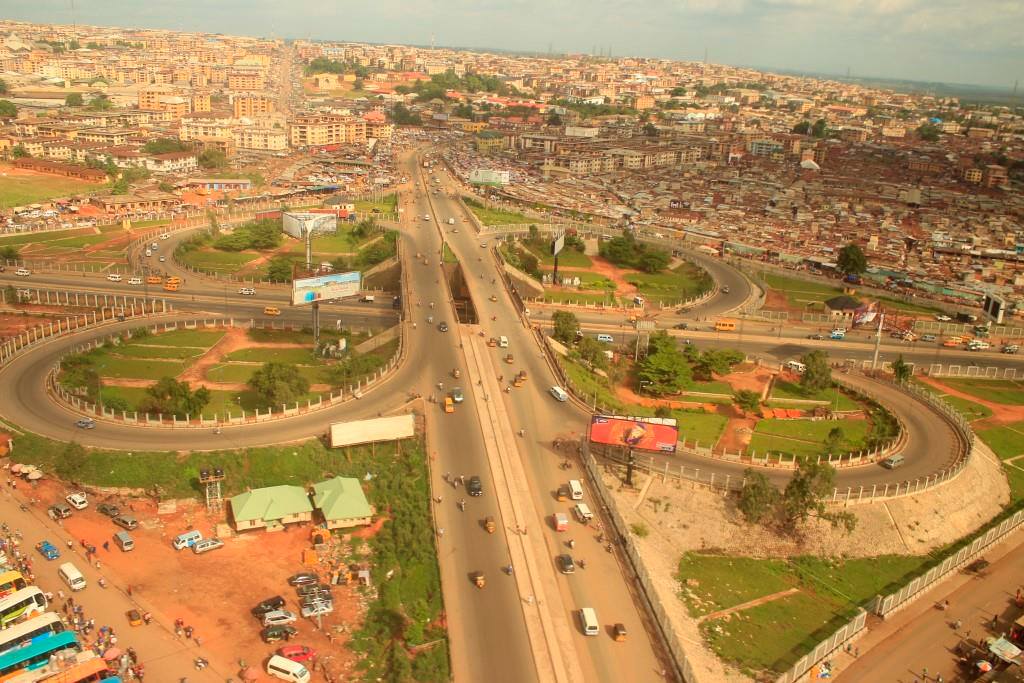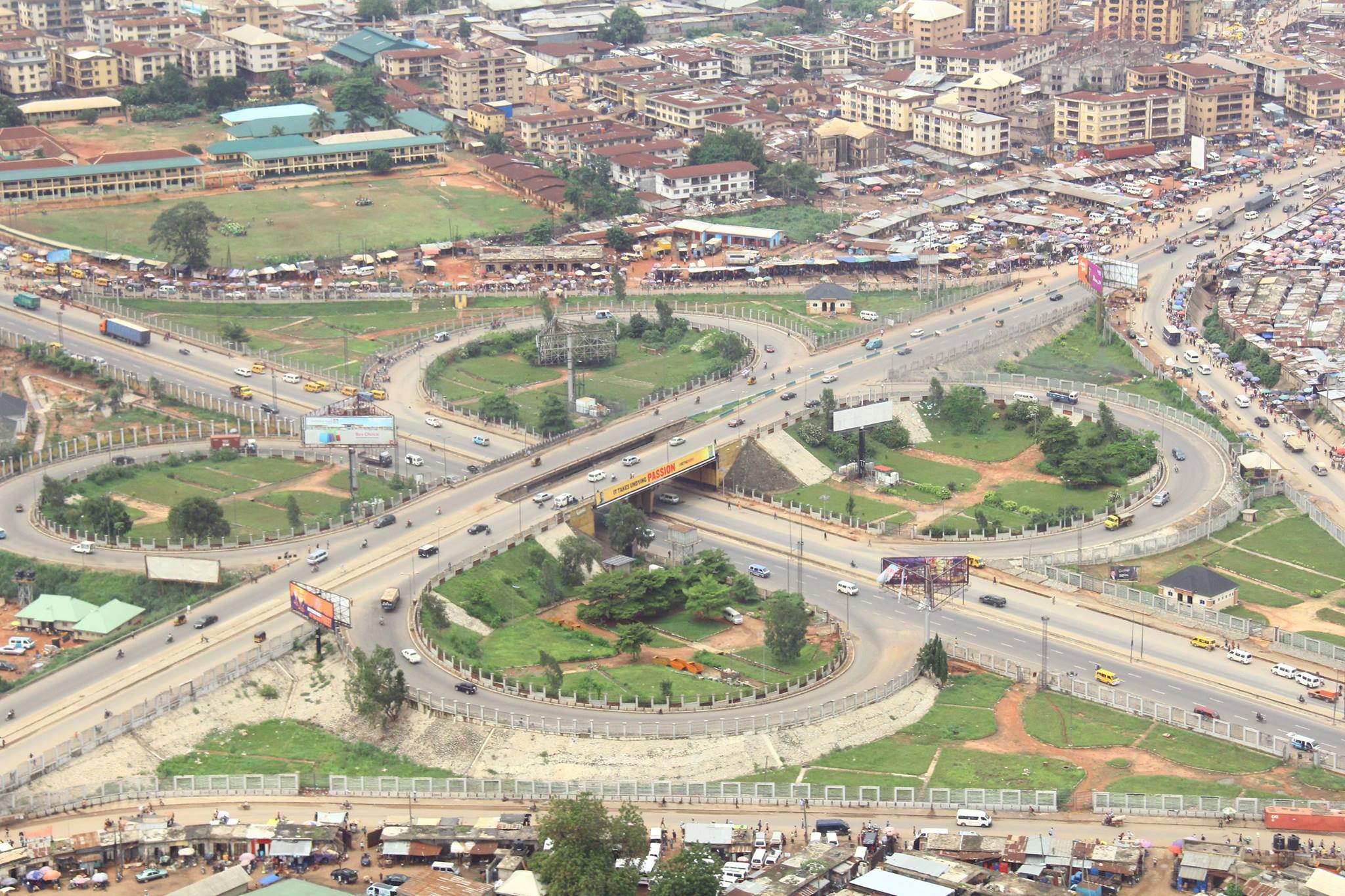[dropcap]W[/dropcap]hen the guns fell silent at the end of the Biafran War, South East Nigeria was a pile of rubble caking in the sun. Despair hung in the air and people inhaled it and heaved a sigh of relief at the strangeness of peace. War and naked ugliness had become familiar. Some lives melted away like palm oil in the midday sun; those who survived the war but had too much self-esteem to survive the listlessness of peace. Those who could not live with the privations, the dispossessions and the stripping away of dignity! To face the reality of defeat and loss of honour, some people needed a new identity. So, names were changed. Identities altered. Yet there were some who chose a path that had neither guile nor honour; those who picked up weapons and wended their way to the crossroads by the Niger. Welcome to Upper Iweka. The erstwhile capital of crime in South East Nigeria!
And so, for four decades, Upper Iweka was a sad reminder of Africa’s most savage war. A theater for the criminal use of the arms left behind by retreating soldiers. The baggage of violent crime and increasing individuation of its residents stood in the way of the likelihood of any big banging commercial explosion in Onitsha. In fact, at a point, it was commonplace for people to look the other way while someone was being robbed in the city. The surrounding areas were no different. Obosi slowly evolved into a little fiefdom for drug lords while kidnappers and armed robbers turned most of the satellite towns orbiting Onitsha into an economic wasteland. In time, the people became familiar with the evolutionary phases in the underworld. They sucked in their breath when the hurricane of communal uprising against the underworld known as “Boys Oyeeh” swept through the commercial city in one tidal wave of cleansing. The tide swept away Otondo and Big-Do; the lords of the underworld of the era. That was in 1979; seven years after the Biafran War. Eastern Nigeria was a boiling cauldron of shattered dreams and broken pride. The death of Otondo and Big-Do brought relief to the city but it was very momentary. The seeds sown by Otondo later germinated into the regime of another crime king, Derico nwa mama (Okwudili Ndiwe) who towered through the anomie to impose himself on the rubble. 22-year-old Derico was a nightmare! His public execution on July 12, 2001 at the infamous Ochanja Roundabout brought closure to an era of anguish.

Onitsha also tottered through horrific periods like the reign of the dreaded Bakassi Boys and the blinding sorcery of Edwin Okeke (Eddy Nawgu). The public execution of crime suspects in those days was a grim spectacle that became the daily diet of a people who once upheld the sanctity of human life. The unorthodox methods deployed by the Bakassi Boys in crime detection and criminal justice were as bizarre as their acclaimed source of power and legitimacy. But harangued by ceaseless waves of crime that reduced life to a hollow ritual of existence, residents of Onitsha were content with any attempt to check the onslaught.
As would be expected, while the tide of violent crime rose and fell through the years, Onitsha shriveled in stature and significance. The city that at the dawn of independence had looked destined to evolve into a leading commercial and industrial powerhouse seemed to have suffered a stillbirth. The notoriety of Upper Iweka as a nest of cutthroat criminals grew to a point that travelers dreaded being caught by nightfall in its vicinity. Most entrepreneurs that gave it its renown abandoned Onitsha for Lagos. After former governor Chinwoke Mbadinuju’s failed experiment with the Bakassi Boys, successive administrations seemed out of ideas about how to tackle the monster.
It was this nightmare, this conundrum; that Willie Obiano rose to subdue in his first six months in office. He announced his resolve to change the history of crime in Onitsha when he stormed Upper Iweka one balmy afternoon and ordered the dismantling of a structure being erected in a public space by one of the most feared transporters in town. The residents saw it as a great act of courage. A dare! Its portents sent a cold chill to the underworld. Past administrations had lacked the gumption to take on some people who lived above the law. But Obiano had done it with a degree of cheekiness that said he would not flinch from using the full executive powers of his office. From that moment, he had drawn a line in the sand for all enemies of the state. What followed was a high-handed crackdown on the underworld; dregs and all. The attack was physical, psychological and even emotional as Operation Kpochapu, the security task force, tore through the gangland architecture like a cyclone, pulling down kidnappers’ warehouses, rounding up dealers in illicit arms and cutting off the supply routes of weapons across the Niger. The hammer-blows on criminals in the state were so severe that Obiano achieved a successful routing of the very pillars of crime in his first 100 Days in office. Myth makers went to town with stories about how Upper Iweka had become so peaceful that if someone dropped his phone on the road, he could come back the next day to retrieve it on the same spot. Obiano latched onto this favorable weather to re-enforce the campaign. He spent the rest of his first year working on the psychology of the people; convincing them that Anambra was safe. It was evident to him that people would only believe their freedom by experiencing it. So, in his formal and informal comments, he never failed to ask Ndi Anambra if they now “slept with both eyes closed.”
Slowly, the phrase “sleeping with both eyes closed,” became a metaphor for freedom; a prayer for peace and quietude. And each time Obiano had asked the question, the people had answered in the affirmative. This had a therapeutic effect; restoring their confidence in the organized society, renewing their faith in the government to protect its citizens.
Interestingly, all this happened simultaneously with the physical transformation of Upper Iweka – the vast stretches of the flyover that form a symbolic crossroads with hundreds of bus terminals, dingy bars, mama-put shacks and drainage that stank to the skies. A paradise for gangsters and pimps! But Obiano drove its motley inhabitants away and turned it into a garden. A garden of hope! Today, the lush greenery of Upper Iweka is a fully realized story of how dreams become monuments. A tribute to man’s capacity to change himself by changing his environment!
The pictures below tell the story better than words. This is Upper Iweka! This is the true meaning of CHANGE!
James Eze is a media aide to Governor Willie Obiano of Anambra State. Connect with him on Facebook.
The opinions expressed in this article are solely those of the author.







